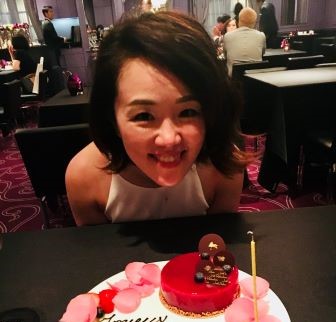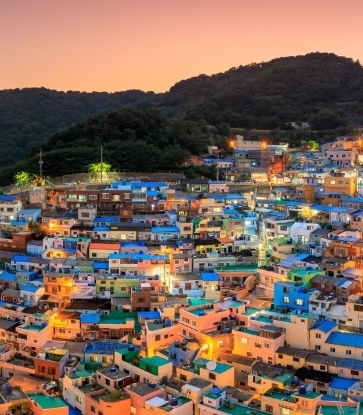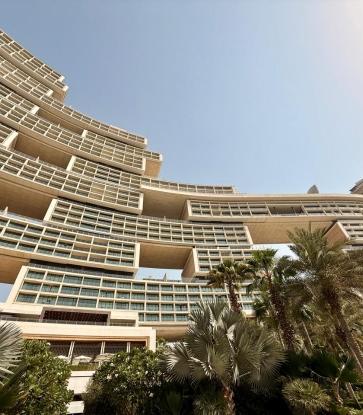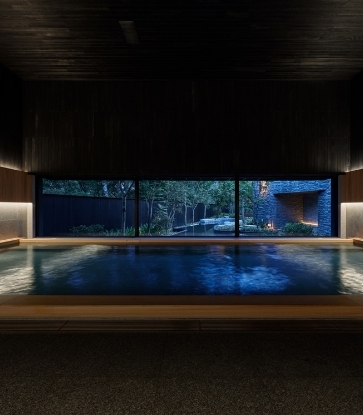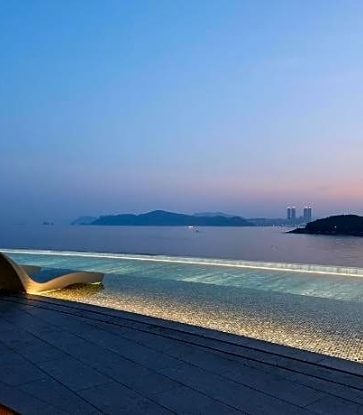Find your hotel
Osaka is a crossroads of bustling activity and culture, and your hotel is the perfect starting point. Explore six distinct districts — each with its own character — to shape your stay your way.
1. Shinsaibashi/Minamisenba (Minami)
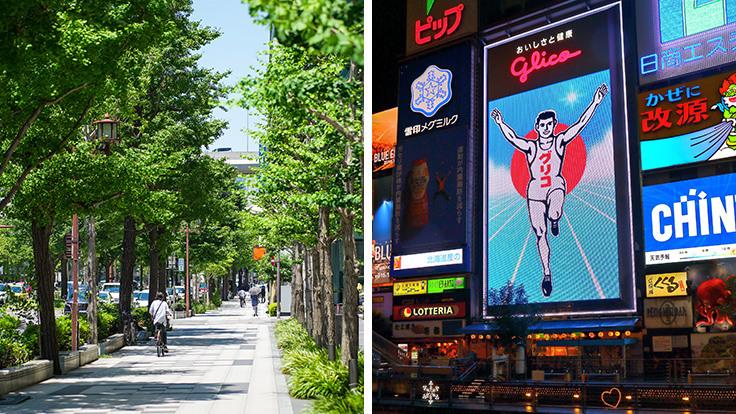
From the bustle of Shinsaibashi Shopping Street to the street culture of Amerikamura and the neon signs of Dotonbori, Midosuji, Osaka’s main street, hums with shopping and business. Yet Midosuji also appeals as a beautiful boulevard lined with splendid zelkova trees. Two nearby hotels capture this harmony at the heart of the city.
At Candeo Hotels Osaka Shinsaibashi, the atrium embraces a Buddhist temple more than 1,200 years old, where mornings echo with the sound of priests chanting sutras. On the top floor, the Sky Spa invites guests to soak in an open-air bath while gazing across the night skyline.
W Osaka features a striking black facade and bold, colorful interiors. Built under the supervision of architect Tadao Ando, W Osaka projects a realm outside the ordinary.
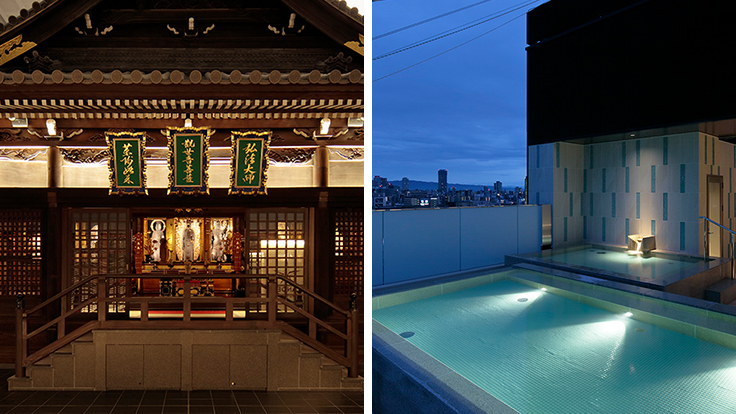
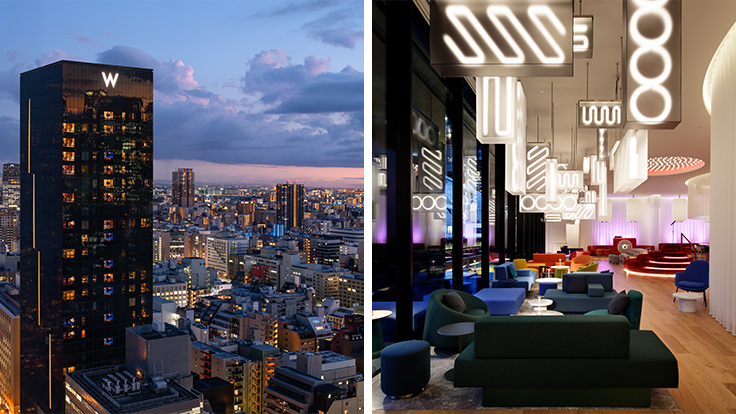
2. Nakanoshima/Doshima
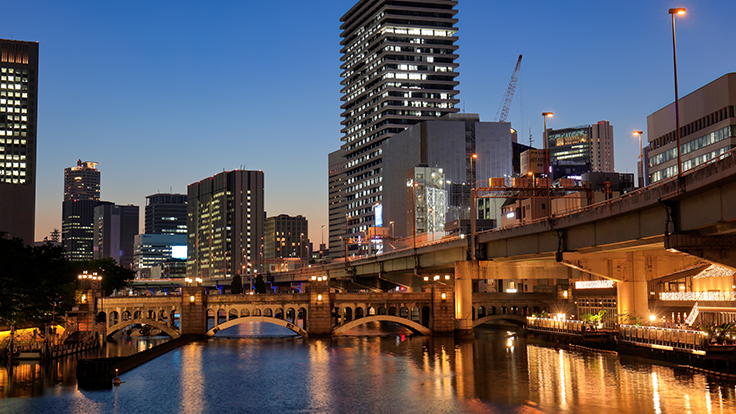
Dojima, once home to a historic rice market, has evolved into a commercial district rich in culture. It encompasses Nakanoshima, an island of architectural beauty and serenity beside the Dojima River, and adjoins Kitashinchi, long known for its vibrant dining and nightlife. Today, Dojima remains a destination for exploring Osaka’s flavors and traditions, with an outstanding cluster of MICHELIN Guide–listed restaurants.
Zentis Osaka is a boutique hotel that captivates with its refined interiors and harmonious atmosphere. Conrad Osaka offers luxurious stays enlivened by fine art and stunning high-rise views. Four Seasons Hotel Osaka is a luxury hotel that offers breathtaking panoramic views and interiors that are a symphony of Japanese and modern aesthetics.
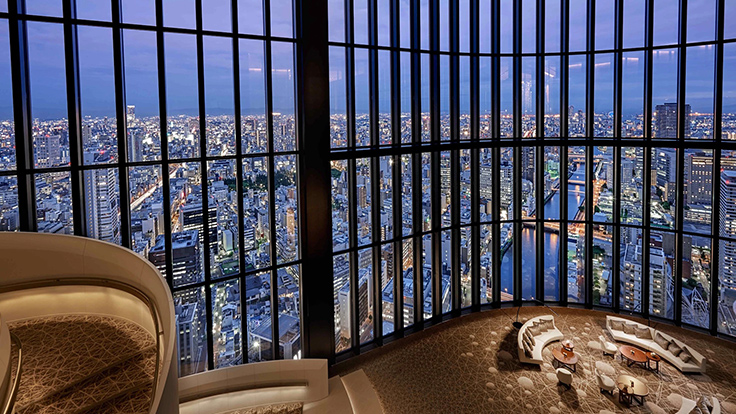
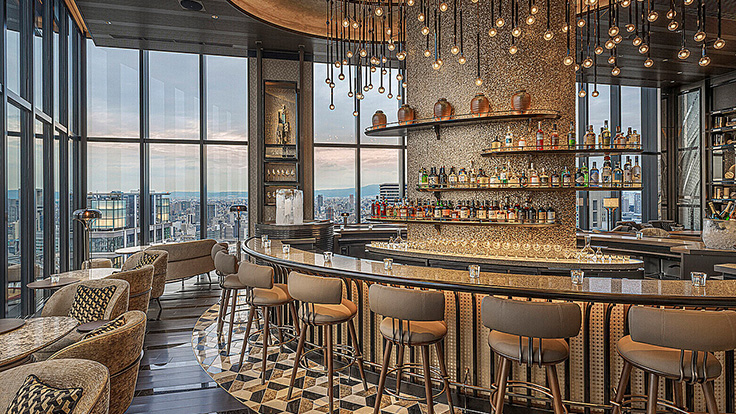
The most show-stopping feature of Candeo Hotels Osaka The Tower is the Sky Spa on the 31st floor, with its panoramic open-air bath. The spa is recognized by Guinness World Records™ as the world’s highest infinity open-air bath inside a building. With its location on the riverside next to Dojima Park, Candeo Hotels Osaka The Tower stuns with its panoramic views of Osaka.
Aloft Osaka Dojima bills itself as a “next-generation lifestyle hotel” fusing music, design and technology into a stylish and convenient accommodation experience. The neighborhood is replete with cultural facilities, many housed in buildings that are attractions in their own right. These include the eye-catching black cube of Nakanoshima Museum of Art, Osaka and the vast underground exhibition space of the National Museum of Art, Osaka.
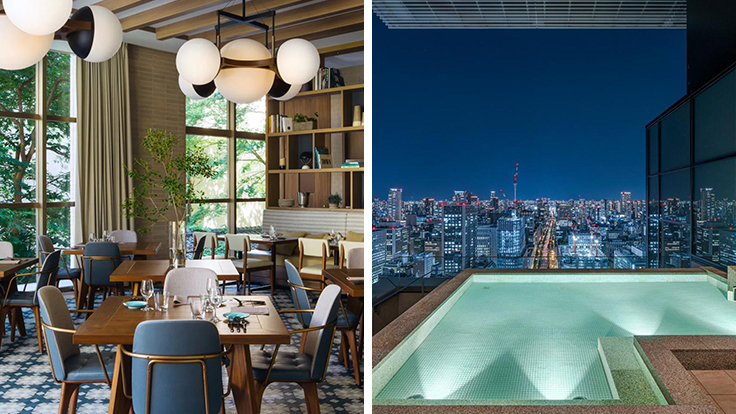
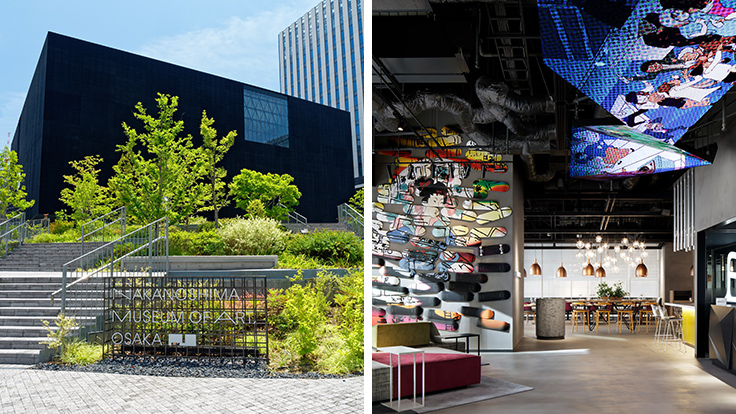
3. Umeda/Osaka Station
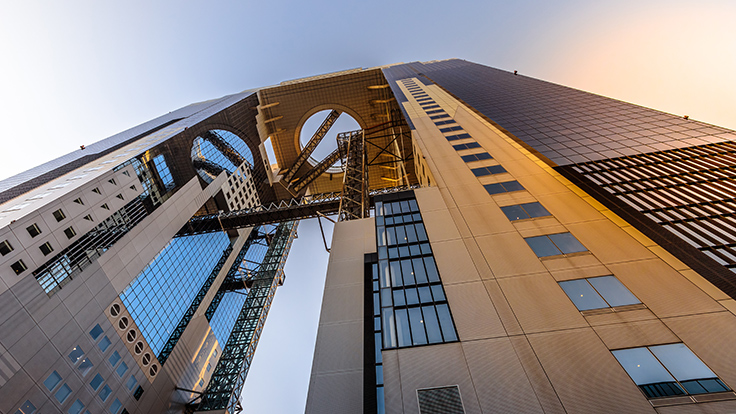
Umeda, “the gateway to Osaka,” is an eclectic mix of modern high-rises and post-war streetscapes, offering a glimpse into the city’s many layers. The Osaka Station Hotel, Autograph Collection welcomes travelers with stately interiors and tranquil guestrooms, while its hidden speakeasy is discreetly accessed through a door marked “Station Chief’s Office.”
The Ritz-Carlton Osaka evokes the grandeur of an 18th-century noble residence, with fine artworks and antiques woven throughout its interiors. In the lobby, paintings and Wedgwood antiques set the tone, while curated art tours invite guests to explore the hotel’s collection in greater depth.
InterContinental Hotel Osaka is a luxury urban hotel tucked within Grand Front Osaka, a large commercial complex. Many of the spacious guest suites afford sweeping views of the Osaka skyline. Modern interiors with deep bathtubs and original rain showers guarantee a relaxing stay.
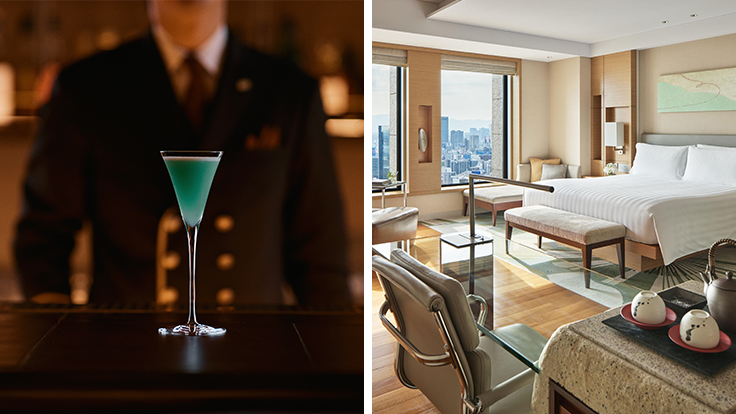
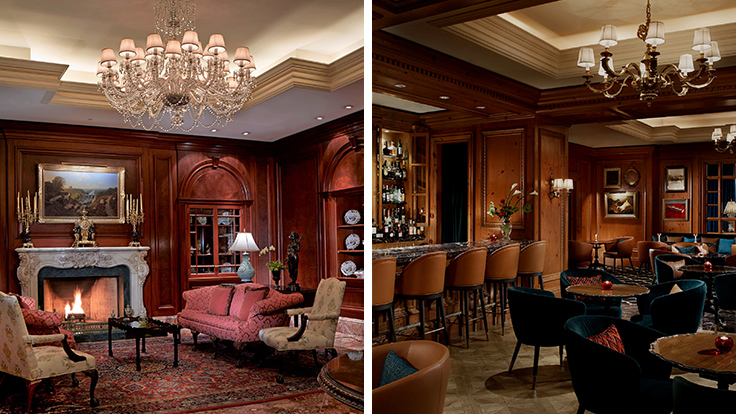
Shin-Umeda Shokudogai is a cluster of stand-up bars and casual eateries that oozes 1950s Osaka atmosphere. Beloved by locals, this “eating town” offers a rustic eating experience. Nearby Sonezaki Ohatsutenjin-dori shopping street leads to an open-air shrine, while Urasando (rear shrine approach) is lined with charming izakaya pubs and bars.
Also found here are two locations offering high-up views of the city. Atop the Umeda Sky Building, the Floating Garden Observatory offers panoramic views of the Osaka cityscape. HEP FIVE, a shopping mall, is crowned with an iconic, bright-red Ferris wheel that puts the whole city at one’s feet.
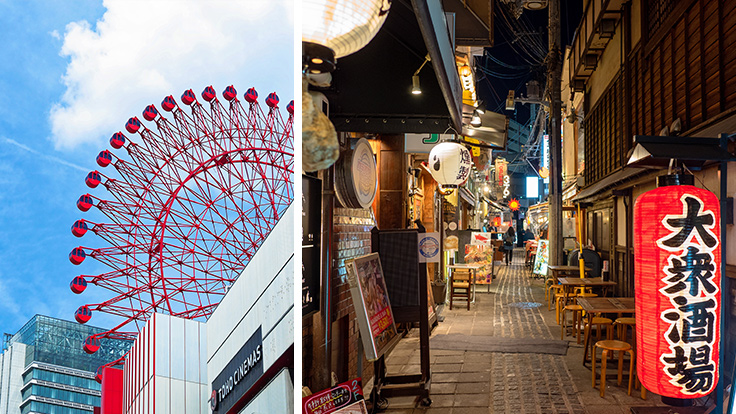
4. Tenma
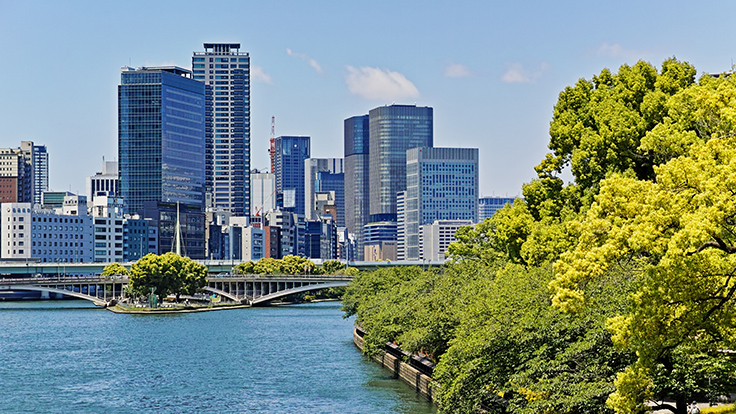
The Tenma area spreads out along the banks of the O River, a spacious waterside district where history blends easily with modern vibrance. Hotel Noum Osaka, with its minimalist design and quiet location, appeals with the warmth of its guestrooms and reasonable price range. At the adjacent coffee shop, which serves breakfast, you can enjoy a cup of java made with beans from Berth Coffee, a Tokyo-based specialty coffee roaster.
Cultural attractions in the area include Fujita Museum, whose collection of some 2,000 East Asian antiques includes national treasures and Important Cultural Properties among them, and the original Japan Mint building, which preserves late-19th-century Western-style structures. Also nearby is Tenjinbashisuji Shopping Street, Japan’s longest covered shopping arcade, stretching 2.6 km with over 600 shops. These range from knife shops and tea stores to coffee shops, Japanese patisseries, and vendors selling takoyaki (grilled octopus dumplings) and korokke (Japanese-style croquettes), making it a lively spot for tabearuki — walking and eating.
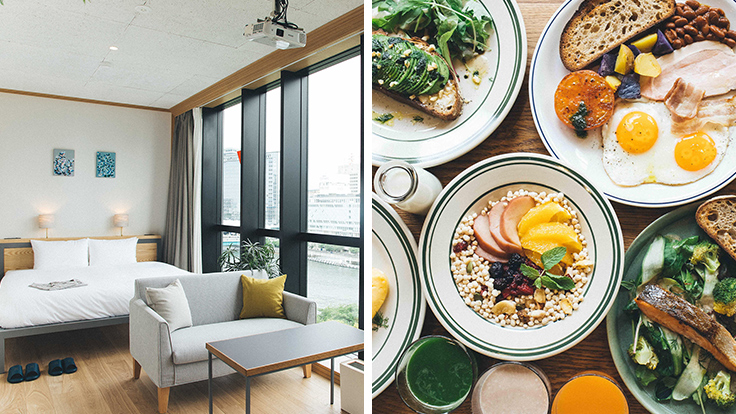
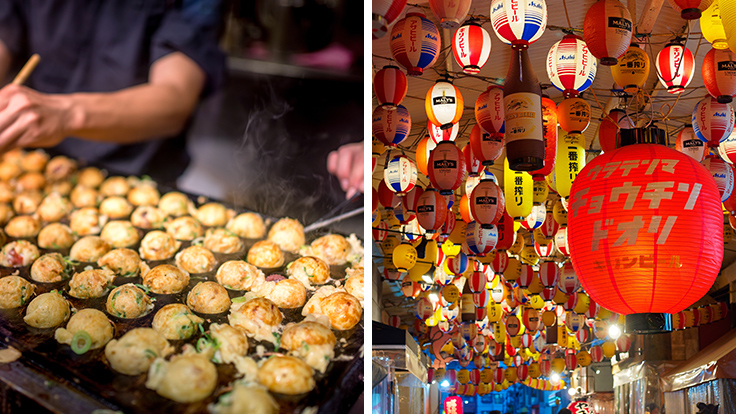
5. Osaka Castle
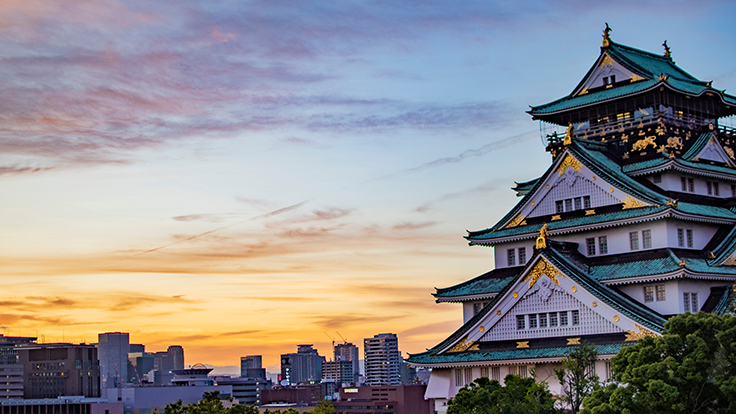
Surrounded by the wide, green spaces of Osaka Castle Park, this area stands at the city’s heart, yet retains a quiet environment where visitors can enjoy seasonal beauty and a landscape steeped in history. Many of the park’s ancient structures date back to Japan’s Warring States period (1467–1568), including the keep, watchtowers, stone walls and moat. The grand scale of the castle complex is striking, especially when framed with cherry blossoms in spring and turning leaves in autumn. Nearby, the Osaka Museum of History traces the city’s history from ancient origins to modern times, while the Osaka Water Bus Aqualiner departs from Osaka Castle Port Terminal for a close-up view of “Osaka, the Water City.”
One hotel in this area is Patina Osaka. With its glass exterior wrapped in greenery, it offers a sanctuary in the heart of the city, quietly blending modern luxury with traditional Japanese aesthetics. In addition to spacious guestrooms, the hotel features stunning views of Osaka Castle, a state-of-the-art spa and wellness facilities — a stay designed to satisfy both body and soul.
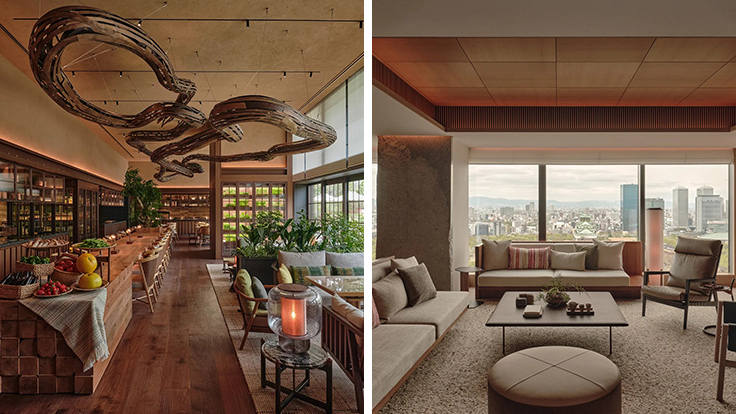
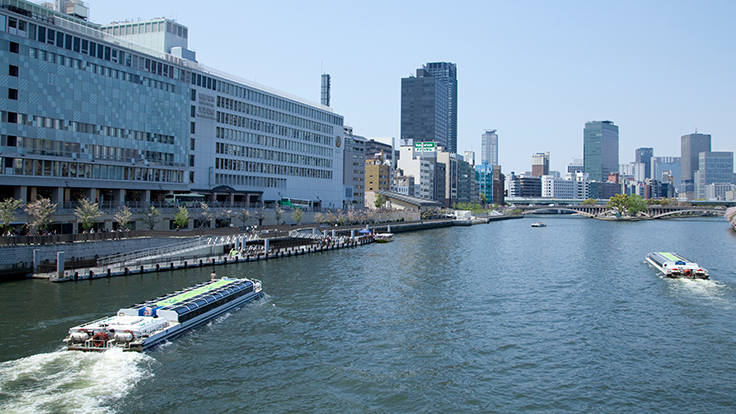
6. Tennoji/Abeno
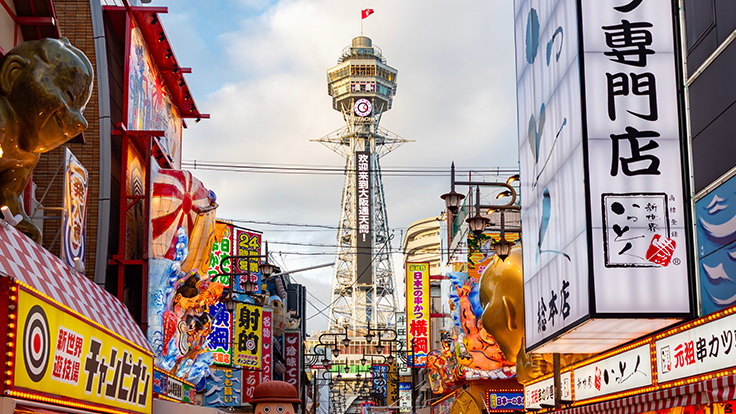
Shinsekai or ”New World” is positioned as the southern gateway to Osaka. Here modern high-rise buildings rub shoulders with a nostalgic “lower town” dating back to the early- to mid-20th century.
Perched atop Abeno Harukas skyscraper, whose height exceeds 300 metres, Osaka Marriott Miyako Hotel was once Japan’s loftiest hotel. Views from guestrooms encompass the entire Osaka Plain.
The mixed-use complex connected directly to the hotel is convenient for shopping. Walk a little farther and you can easily reach Shitennoji, renowned as Japan’s oldest temple; Osaka Tennoji Zoo; Osaka City Museum of Fine Arts; and Keisawaen, a Japanese garden known as a kaiyushiki-teien, or a garden with promenade around a central pond. Tsutenkaku Tower and the neighborhood of Shinsekai bustles with nostalgia and icons of Osaka popular culture. These include Billiken, the Shinsekai mascot seen everywhere here; and kushikatsu (pork cutlet on a stick) made famous by Janjan-yokocho, a shopping and eating street.
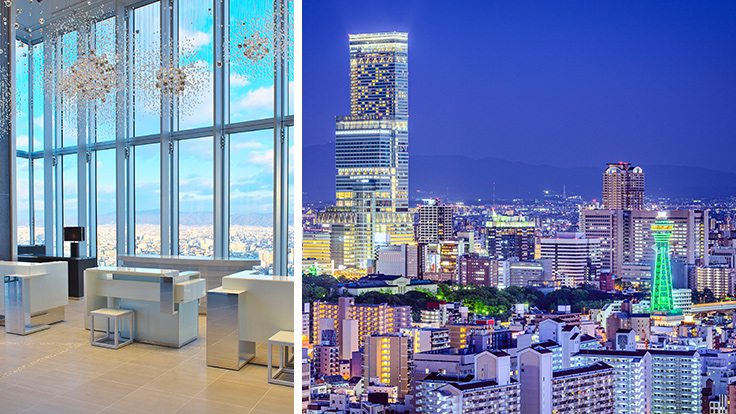
Find your hotel
Hero Image: Dotonbori River at sunset © coward_lion – stock.adobe.com


